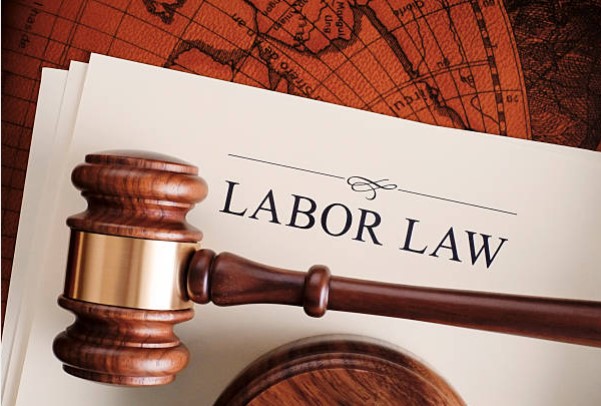The concept of double jeopardy has its roots in ancient Greek and Roman law. In 355BC, Demosthenes of Athens said:
“The law forbids the same man to be tried twice on the same issue.”
The principle of double jeopardy is also applicable to labour law. In criminal law the plea is commonly knownas autrefois convict or autrefois acquit.John Grogan’s book Workplace Law 11th Edition at Page 286-287 defines double jeopardy in labour law as follows:
“Where employees have been acquitted at a disciplinary inquiry, or the presiding officer has imposed a penalty/sanction less severe than dismissal, they cannot generally be subjected to a second enquiry on the same offence. Nor may management ignore the decision of a properly constituted disciplinary enquiry and substitute its own decision. A dismissal in such circumstances would invariably be unfair.”
The learned author J.Grogan on Page 288 goes further to state that for an employee to succeed on the allegation of breach of double jeopardy rule, the main requirement is whether the ‘first hearing’ was in fact a proper hearing and that the second hearing related to the same offence.
The applicability of the double- jeopardy principle was tested across Limpopo in the South African jurisdiction in the famous case of Walsh v Delta Motors Corporation (Pty) Ltd (1998)3 LLD 152 (CCMA). In that case an employee assaulted and severely injured another. The employee’s supervisor counselled the offender and struck an agreement with him to meet the victim’s medical expenses. The supervisor then requested that the matter be closed. The employer’s industrial relations department took up the matter and instituted disciplinary measures resulting in the employee’s dismissal. The employee contended that he had already been pardoned by his supervisor and therefore could not be subjected to another hearing citing breach of the double jeopardy principle. The court ruled that the double- jeopardy did not apply as the employer merely complied with its disciplinary code and procedure, that is, to hold a disciplinary hearing. The decision to dismiss the employee was allowed to stand. Suffice to mention that this decision has stood the test of time.
The principle was also elaborated in Branford v Metrorail Services (2003) 24 ILJ 2269 (LAC). In that case an employee was dismissed for fraud after stealing petty cash on a number of occasions. In some cases he had forged the supervisor’s signature. Before the disciplinary hearing that led to his dismissal, his line manager had called him in, given him a thorough dressing down and placed a ‘formal warning on his file’. The CCMA commissioner who subsequently heard the matter held that Brantford had been subjected to two disciplinary enquiries and could find no exceptional circumstances to justify the second inquiry and on that basis set aside the dismissal. The Labour Court held that the manager’s talk to Brantford was not an inquiry at all and that the formal hearing was in fact the first inquiry and therefore there was accordingly no breach of the double-jeopardy principle. The Labour Appeal Court split, one judge held that there was no basis to interfere with the Commissioner’s decision but the majority ruled that the commissioner had erred by looking for exceptional circumstances and ignoring considerations of fairness. It held that the commissioner’s suggestion that the double-jeopardy principle would have been infringed even if the line manager had acted in bad faith was irrational. The court further emphasized that the proper test in cases of alleged breach of the double-jeopardy principle is fairness. Other considerations include whether the first hearing was conducted in good faith by the presiding officer; whether the presiding officer had the power to make a final decision or to make a mere recommendation; whether the first inquiry was conducted in accordance with the employer’s disciplinary code among other things.
It is important to emphasize that the employer at the work place should strive to avoid a situation where an employee gets an impression that he/she has been warned or pardoned for misconduct through informal means, lest they will be faced with a plea of double-jeopardy rule when they decide to formally discipline the employee. The management at the workplace should avoid meddling in disciplinary matters and leave that in the hands of officials designated to handle disciplinary issues.
The contents of this article are for general information purposes only and do not constitute our legal or professional advice. We accept no responsibility for any loss or damage of whatsoever nature which may arise from reliance on any of the information published herein.
Copyright © Marume& Furidzo Legal Practitioners 2020




2 Comments
Nombulelo
Can a double jeopardy affect my family in mind and children at school for concentration? My company did it to my husband and I’m no concentrate well at work.
Marume & Furidzo Legal Practitioners
Kindly get in touch by visiting us or contacting us via Whatsapp for legal support
Address: 4th Floor, North Wing
Mercury House
24 G. Silundika Ave
Harare, Zimbabwe
Phone: Telephone: 263 242 700609
Mr. Marume: +263 772 834 327
Mr. Furidzo: +263 772 380 877
Email: info@marumeandfuridzo.com
marfurlegal@gmail.com